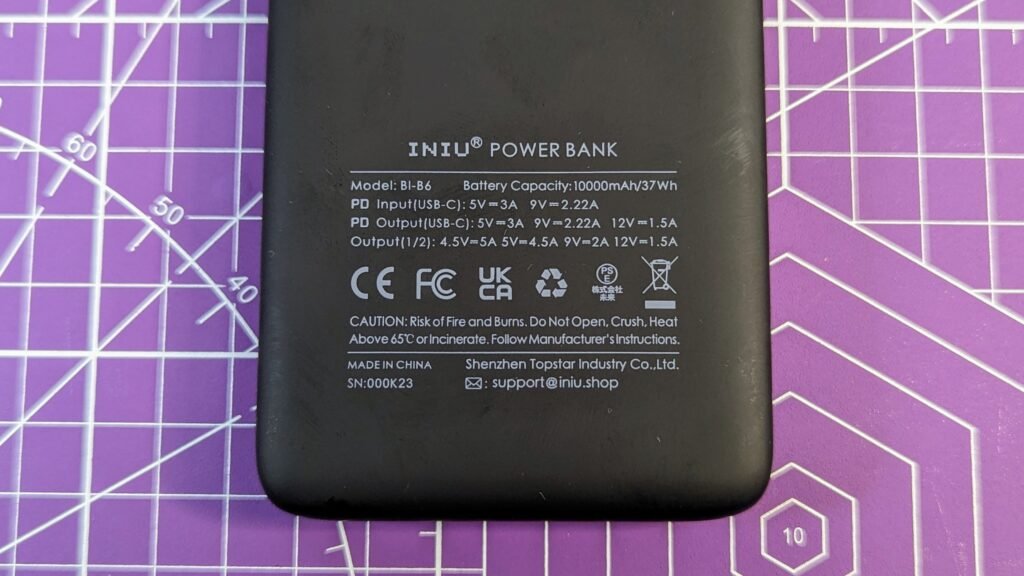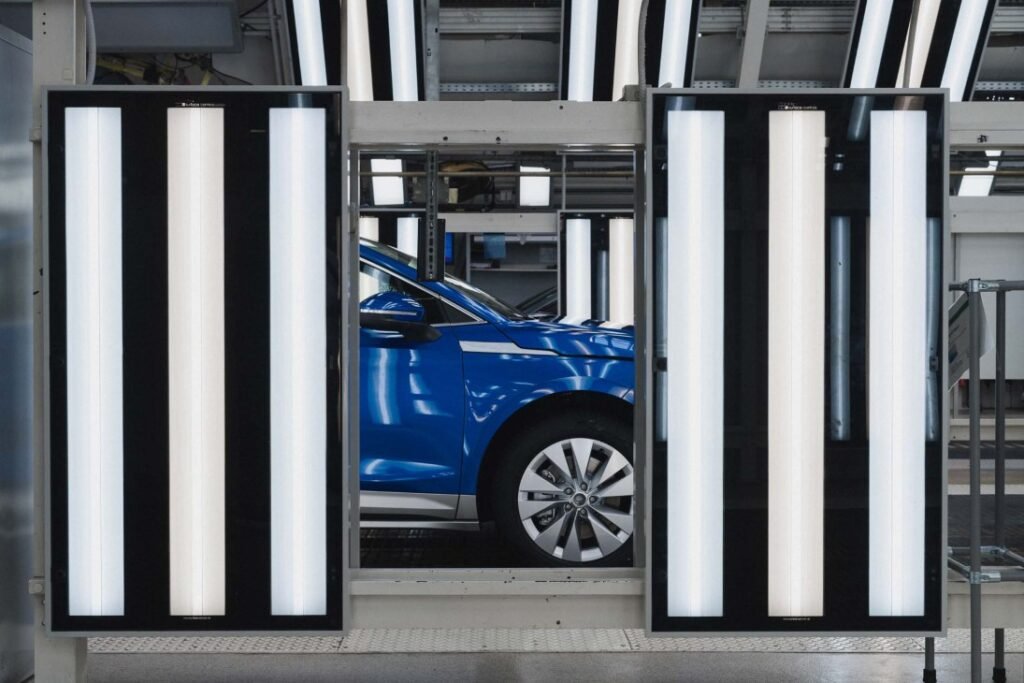Electric vehicle (EV) makers are under pressure due to intense competition, impact of tariffs and macro challenges on demand, high interest rates, and unfavorable changes in regulatory policies, including the end of EV credits in the U.S. Nonetheless, analysts are bullish on some EV stocks due to their long-term growth potential. Using TipRanks’ Stock Comparison Tool, we placed Tesla (TSLA), Rivian Automotive (RIVN), and BYD (BYDDF) against each other to find the best EV stock, according to analysts.
Elevate Your Investing Strategy:
- Take advantage of TipRanks Premium at 50% off! Unlock powerful investing tools, advanced data, and expert analyst insights to help you invest with confidence.

Tesla (NASDAQ:TSLA) Stock
Tesla stock has declined 17% year-to-date, as investors are concerned about the persistent weakness in the company’s sales amid rising competition, lack of innovation, and the backlash related to CEO Elon Musk’s political ambitions.
Many analysts are concerned about Tesla’s EV business, with Musk warning investors about “a few rough quarters” due to the expiration of federal tax credits. Meanwhile, TSLA bulls are optimistic about its full self-driving (FSD) technology, robotaxis, and the humanoid Optimus robot, and expect the company’s long-term growth to be driven by these offerings.
Is Tesla Stock a Buy, Sell, or Hold?
Recently, Wolfe Research analyst Emmanuel Rosner reiterated a Hold rating on Tesla stock. Rosner contends that the investment case for Tesla is shifting increasingly toward its artificial intelligence (AI) and autonomy ambitions, despite a mixed near-term outlook for the core auto business. He added that confidence in Tesla’s AI opportunities “remains the most important driver of the stock.” Rosner also highlighted upcoming catalysts around FSD and robotaxis, including expansion into new markets, potential FSD approval in China and Europe, and hands-free functionality in parts of the U.S.
He added that Tesla’s Optimus humanoid robot is expected to enter scaled production in 2026, with management targeting 1 million units per year by 2030. Despite these positives, Rosner thinks that near-term fundamentals remain under pressure. Rosner cautioned about a “challenging” setup over the next 18 months, citing risks to Model 3 and Model Y demand once U.S. clean vehicle tax credits expire. Interestingly, the analyst views Tesla’s Energy segment as a bright spot. He expects Energy revenue to double to $18 billion in 2026 compared to $9.2 billion in 2024, with strong gross margins. Rosner believes that TSLA’s success in Energy is crucial in the medium term to avoid notable cash burn, especially as regulatory credit sales end and investments in AI ramp up.
Overall, Wall Street has a Hold consensus rating on Tesla stock based on 14 Buys, 15 Holds, and eight Sell recommendations. The average TSLA stock price target of $307.23 indicates a possible downside of 8.3% from current levels.

See more TSLA analyst ratings
Rivian Automotive (NASDAQ:RIVN) Stock
Rivian Automotive recently disappointed investors by reporting a larger-than-expected loss for the second quarter due to higher costs resulting from supply disruption of rare earth metals used to make parts of its EVs. The company’s Q2 deliveries plunged 23% to 10,661 vehicles. However, Q2 top line still increased due to higher software and services revenues.
While Rivian maintained its full-year deliveries guidance, it increased its adjusted EBITDA loss outlook to reflect the loss of revenue from the sale of EV credits to traditional automakers looking to avoid emission fines.
Rivian is now gearing up for the launch of its R2 SUV in the first half of 2026. The company’s lineup also includes the R3 crossover and its performance variant, R3X. These lower-priced models are expected to help improve the company’s sales.
Is Rivian Stock a Buy or Sell?
Last week, Benchmark analyst Mickey Legg reiterated a Buy rating on Rivian stock with a price target of $18. Following an investor call with Rivian’s VP of Finance, Derek Mulvey, Legg stated that he came away confident about the company’s growth trajectory, operational execution, and ability to scale production into the R2 launch. The analyst added that Mulvey’s commentary reinforced his view that Rivian is positioned to leverage its technology, brand, and partnerships to win notable share in the premium EV market while expanding into more affordable segments.
Legg stated that his bullish thesis behind RIVN’s multi-year product roadmap, software-driven differentiation, and strategic partnerships remains intact. He contends that near-term volatility from policy shifts is outweighed by the medium-term production and margin expansion opportunity.
However, Legg’s optimism is not shared by several other analysts. Wall Street has a Hold consensus rating on Rivian Automotive stock based on 14 Holds, eight Buys, and three Sell recommendations. The average RIVN stock price target of $14 indicates about 13% upside potential from current levels. RIVN stock has declined by nearly 7% year-to-date.

See more RIVN analyst ratings
BYD Company (OTCMKTS:BYDDF) Stock
Chinese automaker BYD has rapidly established its dominance in the EV market, giving competition to the likes of Tesla. With solid execution and innovation, the company has grown at an impressive pace in recent years and bolstered its position in the battery electric vehicle (BEV) and plug-in hybrid electric vehicle (PHEV) markets.
However, July marked the first monthly decline in production for BYD, breaking a 16-month growth streak. Meanwhile, BYD’s new energy vehicle (NEV) sales (including BEV, PHEV and commercial vehicles) increased by just 0.6% year-over-year to 344,296 vehicles in July, marking a sharp deceleration from a 12% growth in June. This slowdown came amid growing price wars, intense competition, and weakness in BYD’s PHEVs. Interestingly, BYD’s BEV deliveries grew about 37% year-over-year to 177,887 units in July, but were down 14% sequentially.
The auto giant offered steep discounts on its lower-end models, triggering similar moves by rivals. This led to warnings by top Chinese leaders about fueling a price war. Despite the July setback, analysts remain upbeat about BYD’s growth potential.
Is BYDDF Stock a Good Buy?
Recently, Bernstein analyst Eunice Lee lowered the price target for BYD Company stock to HK$133 from HK$145 and reaffirmed a Buy rating. Lee stated that BYD and Xiaomi (XIACF) remain Bernstein’s top picks. The analyst is bullish on BYD as the company’s strong overseas EV performance is offsetting challenges in the domestic market. Lee also noted robust battery sales to key clients like XPeng (XPEV) and Xiaomi.
While Lee remains bullish on BYD’s growth prospects, she cut the price target to reflect lower sales volumes and margin assumptions for the Chinese market.
Overall, Wall Street has a Strong Buy consensus rating on BYD Company stock based on eight Buys and one Hold recommendation. The average BYDDF stock price target of $21.21 indicates about 46% upside potential from current levels. BYDDF stock has rallied more than 28% year-to-date.

See more BYDDF analyst ratings
Conclusion
Wall Street is currently sidelined on Tesla and Rivian stocks, but bullish on BYD. Analysts see higher upside potential in BYDDF stock than in the stocks of the other two EV makers. Wall Street is optimistic about BYD due to its solid market share, strong execution, innovation, and growing international presence.
Disclaimer & DisclosureReport an Issue






